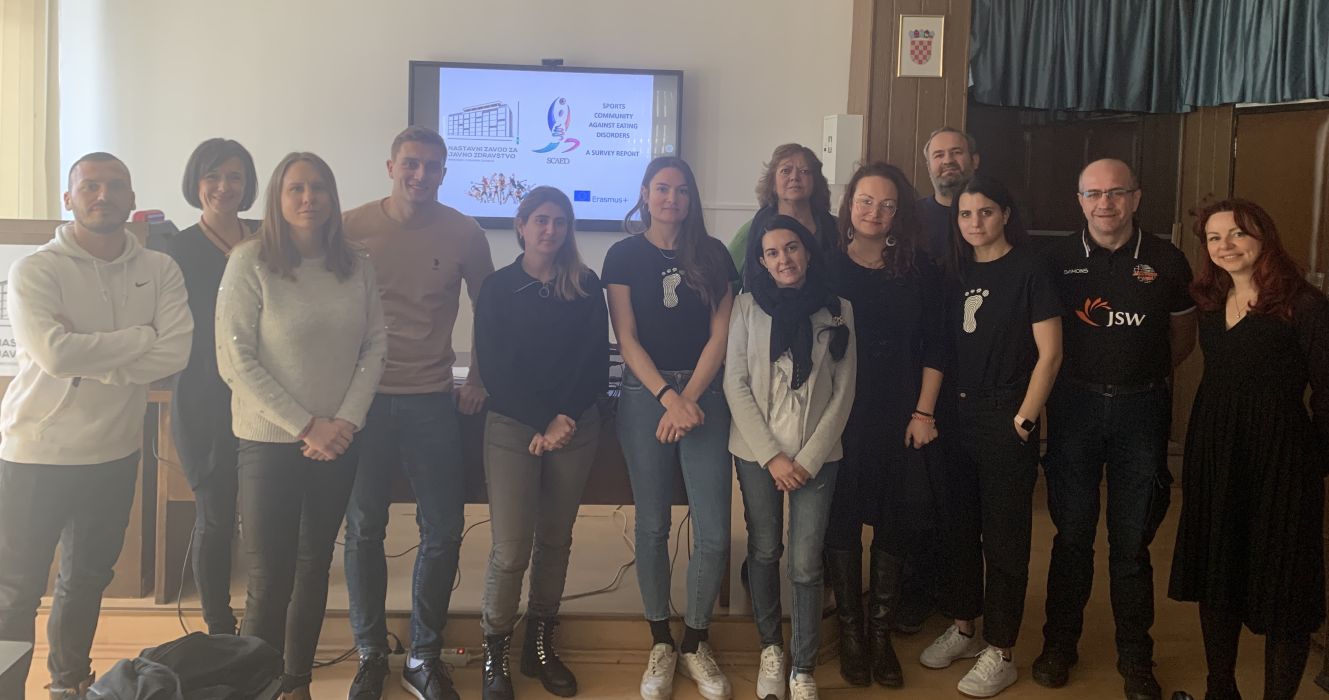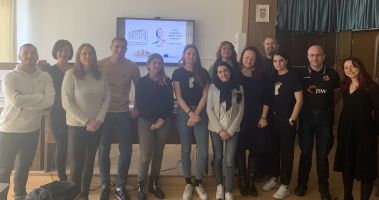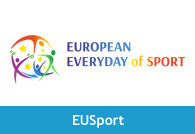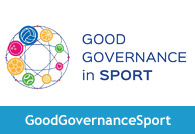NEWS

PARTNERS MEETING UNDER THE SCAED PROJECT WAS HELD IN RIJEKA


26.01.2023
On the 26th of January 2023, a partners meeting under the SCAED – Sport Community Against Eating Disorders project was held in the city of Rijeka, Croatia. The results achieved so far, as well as the future activities of the project, were discussed. The consortium consists of 6 partner organizations from Bulgaria, Greece, Poland, North Macedonia, Croatia and Italy.
Many athletes are affected by eating disorders. When examining the psychological profiles of athletes and those suffering from anorexia, some common characteristics are noted: striving for perfectionism, high expectations of themselves, competitive spirit, hyperactivity, systematic training, compulsiveness, tendency to depression, ambition, distorted perception of their own bodies, over-involvement with diets and thoughts about weight.
The Bulgarian partner in the initiative is Bulgarian sports development association, and representatives of the organization took part in the meeting: Kalinka Gudarovska, Diana Hadjiangelova and Velina Toneva.
The common view of eating disorders is that they are a "Western" disease, provoked by social and cultural pressures to achieve an ideal and often unrealistic body image. The truth is that these conditions are actually complex in nature, depend on a number of factors and are present in different societies and cultures. The presence of eating disorders outside the "Western world" are not uncommon. It is a specific fact that we can find anorexia, bulimia and hyperphagia particularly often among the actively exercising members of the population. This has its logical reason. Eating disorders are typical especially for athletes, where weight is directly related to performance.
There are three main reasons for this:
• In sports requiring endurance, such as athletics or biathlon, low body weight is a prerequisite for success, for obvious physiological reasons. Athletes who are a few pounds above their optimal running weight will underperform;
• In sports dividing athletes into categories according to their weight – such as wrestling, judo, boxing, athletes would not be allowed to compete if their weight is above the maximum for their category. Thus, for example, an athlete may return from a competition without even having participated because of his increased weight. This, consequently, leads to serious pressure to lose weight, often in a short time frame;
• In sports such as artistic/sport gymnastics, figure skating or water jumping, aesthetic assessments are also given, so expectations on the appearance of participants are heightened. Serious research indicates a high incidence of eating disorders in these particular disciplines.
Specific objectives of the SCAED project are:
• Reducing the causes of eating disorders in amateur sport;
• Educating coaches and parents on the knowledge needed to combat eating disorders in amateur sport;
• Increase the knowledge regarding eating disorders in amateur sport.
SCAED project is co-funded by the Erasmus+ Programme of the European Union.
The Bulgarian partner in the initiative is Bulgarian sports development association, and representatives of the organization took part in the meeting: Kalinka Gudarovska, Diana Hadjiangelova and Velina Toneva.
The common view of eating disorders is that they are a "Western" disease, provoked by social and cultural pressures to achieve an ideal and often unrealistic body image. The truth is that these conditions are actually complex in nature, depend on a number of factors and are present in different societies and cultures. The presence of eating disorders outside the "Western world" are not uncommon. It is a specific fact that we can find anorexia, bulimia and hyperphagia particularly often among the actively exercising members of the population. This has its logical reason. Eating disorders are typical especially for athletes, where weight is directly related to performance.
There are three main reasons for this:
• In sports requiring endurance, such as athletics or biathlon, low body weight is a prerequisite for success, for obvious physiological reasons. Athletes who are a few pounds above their optimal running weight will underperform;
• In sports dividing athletes into categories according to their weight – such as wrestling, judo, boxing, athletes would not be allowed to compete if their weight is above the maximum for their category. Thus, for example, an athlete may return from a competition without even having participated because of his increased weight. This, consequently, leads to serious pressure to lose weight, often in a short time frame;
• In sports such as artistic/sport gymnastics, figure skating or water jumping, aesthetic assessments are also given, so expectations on the appearance of participants are heightened. Serious research indicates a high incidence of eating disorders in these particular disciplines.
Specific objectives of the SCAED project are:
• Reducing the causes of eating disorders in amateur sport;
• Educating coaches and parents on the knowledge needed to combat eating disorders in amateur sport;
• Increase the knowledge regarding eating disorders in amateur sport.
SCAED project is co-funded by the Erasmus+ Programme of the European Union.

 Български
Български
































